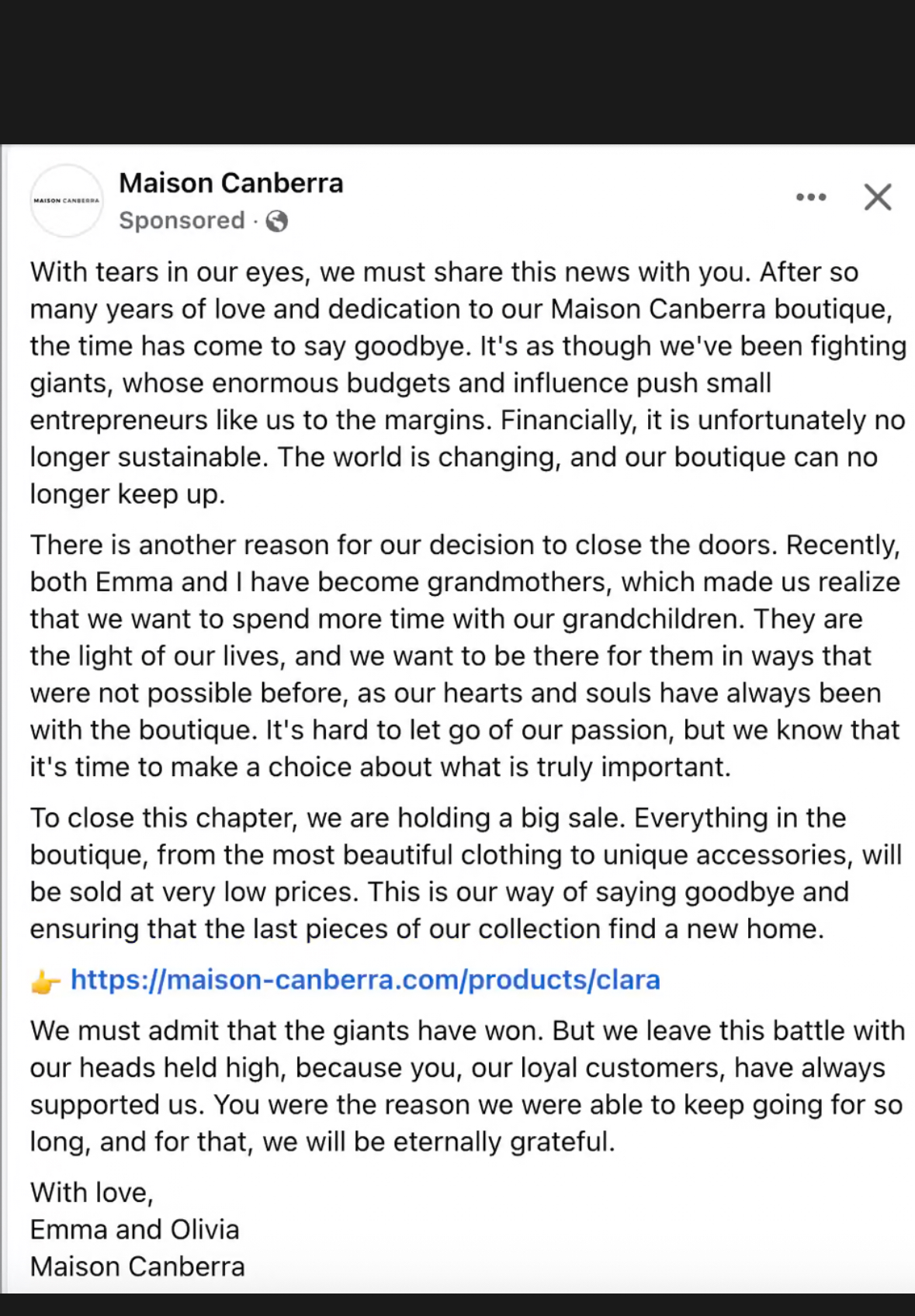A rising tide of *fake tracking scams* is washing over Australian consumers, leaving many feeling deceived and frustrated. These scams involve savvy online fraudsters who wield fake tracking numbers to create an illusion of legitimacy, manipulating unsuspecting shoppers. Let’s dive deeper into these *deceptive practices* and how you can protect yourself.
The Emergence of Ghost Stores
Ghost stores are *fraudulent online retailers* masquerading as reputable Australian businesses. Operating out of virtual storefronts hosted on platforms like Shopify, these scams often present themselves as based in prominent cities like Sydney or Melbourne. With *targeted ads* on social media platforms such as Facebook and Instagram, they entice customers with attractive sales or exclusive offers. But once a purchase is made, consumers receive *phony tracking numbers*, leading them to believe their order is on its way—when in reality, the items are never shipped.
Spotlight: The Maison Canberra Case

Example of a Facebook ad for Maison Canberra
One striking example of this trend is the now-defunct *Maison Canberra*. Posing as a chic boutique in the heart of Canberra, it ensnared a 63-year-old woman from Geelong who forked out nearly *$500* on clothing and shoes, only to receive nothing. After providing evidence of fake tracking numbers, her refund request was initially met with denial from PayPal, which claimed the items had been delivered. Only after escalating the matter to the *Australian Financial Complaints Authority* was she issued a refund.
The Payment Platform Trap
Scammers skillfully exploit the confidence consumers place in payment platforms like PayPal by providing counterfeit tracking numbers that appear credible. Often, these false numbers suggest that items have been delivered, complicating disputes for consumers. In many instances, tracking information correlates with unrelated shipments, making it even harder to recover lost funds.
Obstacles in Consumer Protection
The *Australian Competition and Consumer Commission (ACCC)* has received numerous complaints against ghost stores but faces significant hurdles in enforcement due to the international nature of these scams. Many of these fraudulent websites are operated from overseas, posing challenges in holding the perpetrators accountable under Australian law.
Demands for Accountability
Consumer advocacy groups are rallying for platforms like Shopify and Meta (formerly Facebook) to take a stronger stand against these scams. They advocate for more stringent seller verification processes and enhanced mechanisms for detecting and eliminating fraudulent ads.
Protecting Yourself Against Scams
To shield yourself from these deceptive practices, consider these essential strategies:
- Research the Seller: Verify the legitimacy of online stores by checking reviews, contact information, and business registration.
- Beware of Unbelievable Deals: Too-good-to-be-true prices or high-pressure sales tactics often indicate red flags.
- Use Secure Payment Methods: Choose payment platforms that provide buyer protection, and remain cautious of sellers requesting direct bank transfers.
- Stay Vigilant with Transactions: Regularly monitor your bank statements and immediately report any suspicious activity.
- Report Scams: Notify authorities like the ACCC and your payment provider if you encounter fraudulent activity.
Conclusion: The Call for Action
The alarming rise of ghost stores and counterfeit e-commerce sites in Australia significantly undermines consumer trust. These phantom retailers not only mislead buyers with *fake tracking numbers* but also create a demanding, often fruitless fight for justice against systems that should prioritize user safety. Their sophistication—the use of automated updates and real-time tracking—makes these scams even more insidious.
It is imperative for online payment services like PayPal to enhance their verification and refund processes. Reliance on tracking data alone is no longer sufficient. Swift actions must be taken, such as suspending accounts flagged by multiple users. Furthermore, companies like Shopify and Meta must re-evaluate their advertising and onboarding policies, as allowing such untraceable sellers to operate exposes countless Australian consumers to daily risks.
Building a framework of transparency, accountability, and cooperation between platforms, regulators, and consumers is vital in dismantling the business model of these scam sites that thrive on confusion and deceit.
Disclaimer
Visited 23 times, 5 visit(s) today.





